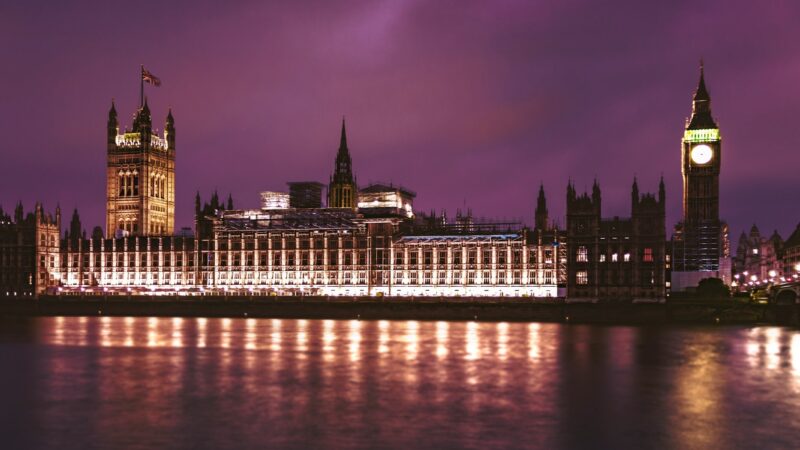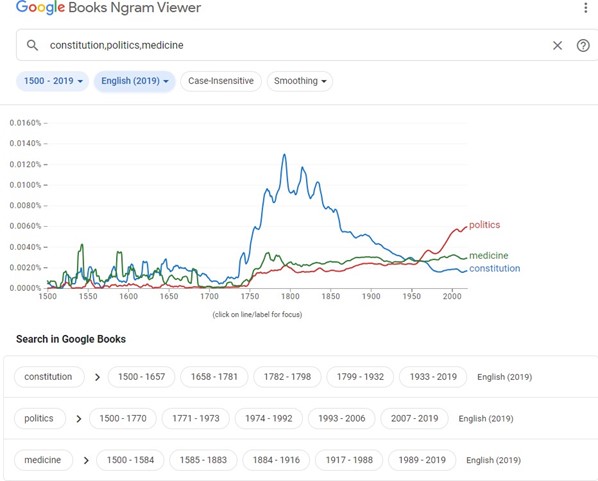Until a few weeks ago, I was thoroughly resigned to the fact that I would not be voting for the first time in my adult life.
This wasn’t a flippant or particularly natural decision for me. A fan of unfashionable causes from a young age, I had always bought into our democratic political system and believed that despite its faults, ours was preferable to the large majority of those around the world.
I’d argue with my sixth form college history teacher, a chain-smoking trade union crustacean, that the Cuban revolution was not a good thing actually. At university, I set up the local youth chapter of UKIP and was one of approximately three students who even signalled that they would vote for Brexit.
As one can imagine, this made me very popular amongst the kombucha-brewing techno-listening charity shop fashionistas who I stubbornly brushed shoulders with by insisting on frequenting their hipster coffee shop, where once a ‘trans’ person told me I should “stop reading the fascist Spectator”.
My earliest political instinct, that our foreign policy did not serve our interests and was based on lies (an instinct that has only grown stronger) was also, I thought, sufficiently represented in our media and political system. I voted, I got excited about elections, watched the BBC and took politics seriously.
Everything changed in early 2020. Watching the entire ‘free world’ engage in highly coordinated state propaganda, erect detainment camps, lock people in their homes for months at a time, and by hook and by crook inject the vast majority of the population with a substance they weren’t allowed to scrutinise in polite society because ‘The Experts’ told them to, changed how I look at politics forever.
I was always aware of the military-industrial complex and its influence, and of that of the financial system. What I have since learnt is that these forces of evil are joined by many other interest groups: Big Pharma, Big Tech, Big Food and the billionaire-foundation complex.
The mask-wearing millions even turned my anger towards them, the public as a whole, which was a very different feeling for a ‘power-to-the-people’, ‘silent-majority’ populist as I had up until then been. What morons, I thought.
How did I ever trust in the collective wisdom, the ‘common sense’ of the public, who had en masse accepted the (even then) clearly moronic behaviour of ‘stay-at-home’ rules and wearing chemical-laden Chinese face-nappies on while alone and outside?
When the Russians entered Ukraine in early 2022, this feeling was compounded. The Covid era had caught everyone off guard, but Ukraine was something I had seen coming for a decade.
In 2014, the year when the Russia-Ukraine war actually started, I had just started university studying, of all things, International Relations and Russian language. I had a large number of Russian and Ukrainian friends. I spent my summers volunteering at educational camps not far from the Ukrainian border. After graduating, I moved to Moscow and started working in TV.
This is my way of saying that I had followed the events since 2014 in detail, with interest, and understood the positions of both sides, the actors involved and like Nigel Farage, had a very strong feeling that this was a disaster in the making. Yet this was a position made paramount to treason. Putin was Hitler, and that was it.
Back living in London and working in UK media after riding out the worst of the pandemic in Istanbul, I had become fully cynical about politics.
How could our parochial, insular and frivolous party politics ever be a solution to the powerful global forces that had transformed the world within just a couple of years? How had I believed that the political fight I had been fighting actually had any chance of taking Britain away from corrupt globalist forces and ‘taking back control’ for the people? Brexit now appeared to be window dressing.
In fact, I had come to believe that I had been seriously deceived. Years of energy were given, and the country was seriously divided, and for what? To have more mass immigration and more economic decline under more Conservative government, with biomedical tyranny and continental war to boot?
In that time, I began to believe in the devil, which was then a stepping stone to believing in God. The world, it appeared, was the devil’s realm. The compounding increase in far-liberal and ultra-progressive ideologies, and the resulting destruction of the family and social degradation, made this clearer.
I concluded that the best way to fight in a world run by the devil, was not through politics, but through free will and faith, walking towards God through this darkness. I still hold that to be absolutely true.
Yet something has happened over literally a matter of weeks that has reignited my interest in politics, and it is more than the return of Nigel Farage, although that has been the catalyst.
The prospect of total Tory collapse was first enticing only out of pure spite.
I had been critical of Farage, one of my political heroes, for what I viewed as terrible positions taken by him and his party during the Covid era, and a perceived silence on our disastrous foreign policy, after years of being outspoken and having the right idea.
Though my disappointment in and disillusionment with politics did indeed make me cynical, nothing made me more cynical than working in British media.
After working with interesting, heterodox international and expat journalists abroad, I discovered that back home it’s staffed largely by mediocrities, as fickle and, frankly, basic as any KMPG graduate or marketing intern.
Outside of the narcissism of small differences, wholly adopted from newspaper op-eds and ‘journo Twitter’ in cyclical bouts of opinion bottom-feeding, they are often not the well-read intelligentsia that they present themselves to be.
Yet the depiction given by many in sceptic quarters, that narratives are tightly controlled by explicit political directives handed out from above, a view I have been sympathetic to in the recent past, does not seem to hold water.
Don’t get me wrong, the fact that there are a small handful of news wires which provide thousands of newspapers and news channels with the same stories, they decide to put out in the way they want, is far from ideal and does have the ability to influence the news cycle.
Yet on the day-to-day, factory-floor level, the reality is that the media, and politics, is largely made up of people who are subject to the very same waves of information warfare, perception manipulation and social acceptability that the general public and all of us are to an extent.
If it is indeed the case, as I now believe, that the enemy is not only far weaker than it has led us to believe, but has never been weaker than it is now, we do not only have the possibility the shift the Overton window through politics, which the media have no way of hiding from, but that we have a duty to be happy warriors and believe that it is possible to effect change.
For those still rightly enraged about the collective amnesia over Covid era mandates and who therefore see Reform as invalidated by not choosing to campaign on that, the reality is that its leadership now hold the correct view of the lockdowns and the jabs, even with the benefit of hindsight.
This won’t satisfy everyone, and I am completely sympathetic to that, but as Bismarck famously said, politics is the art of the possible, and what is possible at the moment is to mobilise around our current problems. Immigration is the obvious issue that will galvanise serious support against the uniparty – and our demographics are our ultimate destiny.
The rise of Reform to neck-and-neck polling position with the Tories is indeed an impressive feat. In fact, the campaign of the Conservatives in this election, which suspiciously feels like it is being directly run by the Labour Party for their own benefit, has got many wondering if this is not an orchestrated handing over of the baton.
In late March, Barack Obama, the man rumoured to be de facto running the Biden administration and campaign, dropped in to see Prime Minister Sunak, for reasons undisclosed.
In the following weeks there was talk by Andrew Bridgen MP that Sunak had been ‘told by the generals’ that we would officially declare we were at war against Russia in the summer ahead of a major escalation. The PM, it is alleged, responded that he did not want to be a wartime leader and a couple of weeks later had abruptly called an election.
All of this, alongside Rishi’s announcement in the rain, which bloggers have called a ‘humiliation ritual’, has led some theorists to believe the Tories are basically throwing the election. Reform, so the theory goes, is ‘controlled opposition’ designed to contain the Tory exodus.
There might be elements of truth to what I have just outlined but my personal experiences with Reform’s leaders do not lead me to that final conclusion. Farage and his team are genuinely running an anti-establishment revolt.
Not only is he running on the same issues which have only gotten worse since Brexit, our broken economy and the rapid demographic transformation of the country, but there is plenty of red-meat for sceptics; railing against the Tories for ‘taking away our freedoms’, hitting out against the World Health Organisation and the World Economic Forum, fighting against debanking, a cashless society and Net Zero lunacy. It’s not a bad platform.
The Andrew Breitbart doctrine is that ‘politics is downstream from culture’. It might then seem obvious that culture is therefore downstream from media, but as I have outlined, that is in fact not the case.
Our media is downstream from both politics and culture. Farage is very successfully using will to power to shift the Overton window and provoke the media into discussions they would ordinarily not have.
Whether you trust him to stick to these positions when push comes to shove almost doesn’t matter as much as his proven ability to act as a battering ram against our established political elite. In any case, he has been consistent on everything and on the Covid saga he has now come to the right place, which is more than can be said for others.
It has been Farage’s positioning on Ukraine, however, that has clinched it for me.
Despite the potential to alienate much of Tory Boomer-England who display their Ukraine flags with the same zeal that Corbynista students do with their trans-Palestinian-EU ones, Farage has stuck to his long-held position that this horrendous conflict was a long time coming.
The establishment, smelling blood, sought to use this to neutralise him, but he hit back harder and spent days making speeches outlining the failed wars of the uniparty, the lies they were based on and their horrific consequences. Labour in Iraq, the Tories in Libya and Syria and yes, Ukraine. “Foreign policy matters!” he’s been telling energetic crowds.
The power of taboos is a force more potent and yet more vulnerable than we imagine. A few hundred thousand of us silently crossing boxes in polling booths do have the power to change the parameters of acceptable discussion by the fallout it can cause for years to come. We should not scoff at that.
At a time like this, when all signs are that the most dangerous and corrupt elements of the collective West are itching for a global conflict, the man who proudly bellows to large crowds that “We only go to war as a very, very last extreme; I will campaign for peace wherever it is possible”, has my vote.
As it says in Psalm 146, Trust in God, Creator and Redeemer:
“Do not place your trust in princes, in mortal men who have no power to save.”
– Psalm 146:3
I won’t, but I will not abandon politics as a way of shifting the dial to expand public consciousness and as a way to take us off potential paths of ruin. Not yet.




